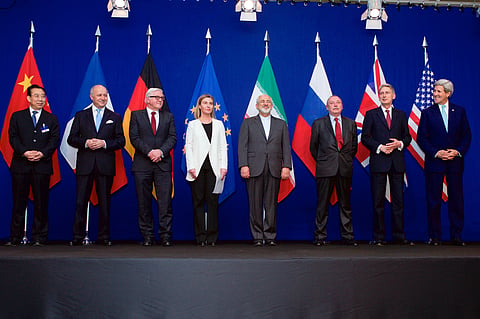

The United Kingdom, France, and Germany—collectively known as the “E3” countries—have formally notified the United Nations of their intention to initiate the “snapback” mechanism that would reimpose international sanctions on Iran. This move comes as the Joint Comprehensive Plan of Action (JCPOA), the 2015 nuclear agreement, approaches its October deadline, after which the mechanism will no longer be valid.
The snapback provision, embedded within UN Security Council Resolution 2231, was a critical feature of the JCPOA. It allowed European nations to lift sanctions on Iran while retaining the right to reinstate them in cases of alleged non-compliance. The E3 now argues that Iran has committed “significant non-performance” of its nuclear-related obligations, citing its continued enrichment activities and lack of transparency with international inspectors.
This decision follows a meeting held on Tuesday between Iranian officials and E3 representatives at the Deputy Foreign Minister level. According to reports, the talks failed to produce any breakthrough, prompting the European trio to escalate their approach.
The formal process is set to begin on Thursday, when the E3 will inform the UN Security Council of their move to trigger the snapback. Once initiated, a 30-day window opens during which sanctions relief could remain in place only if a new resolution is passed—an outcome widely considered improbable due to the veto powers of the E3 and the United States. Should the snapback be enforced, it would reinstate a series of measures including arms embargoes, travel bans, asset freezes, restrictions on ballistic missile development, and prohibitions on the transfer of nuclear-related technology to Iran.
Tehran has repeatedly warned that the reimposition of such sanctions could prompt it to withdraw from the Nuclear Non-Proliferation Treaty (NPT), a move that would further escalate regional tensions.
The timing of this decision is particularly significant. The snapback provision of Resolution 2231 expires on October 18, 2025, meaning that after this date, any new sanctions would require a fresh Security Council resolution—something that Russia or China would almost certainly veto.
In response, Russia’s Deputy Permanent Representative to the UN, Dmitry Polyansky, announced on Thursday that Moscow, backed by Beijing, has submitted a draft resolution to extend Resolution 2231. However, analysts doubt the measure will gain U.S. support, especially given Washington’s withdrawal from the JCPOA in 2018 under President Donald Trump and its current hardline stance toward Tehran.